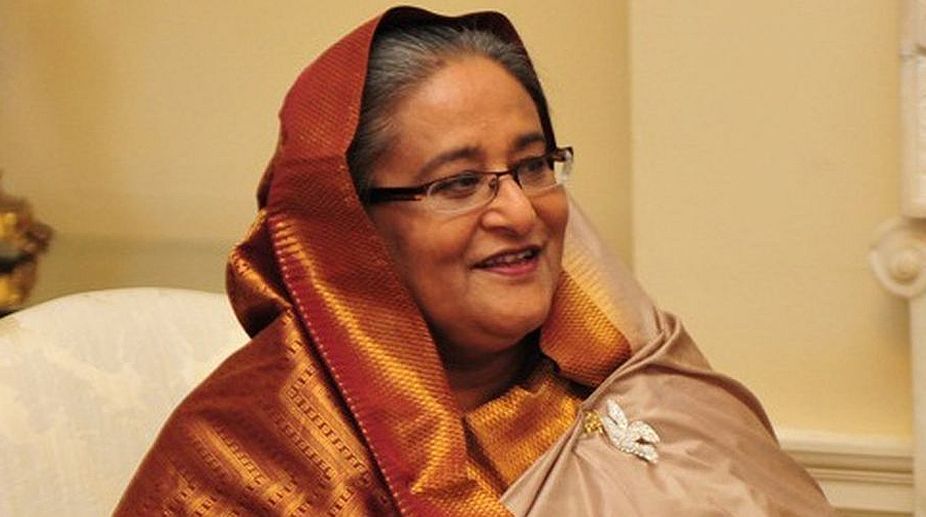Intel appoints Santhosh Viswanathan as India region head
Chip maker Intel on Friday said that it appointed Santhosh Viswanathan to head the India region business as its Managing Director (MD).

Sheikh Hasina Wazed (PHOTO: Facebook)
The bilateral grandstanding on Ekushe ~ 21 February is International Mother Language Day ~ was somewhat neutralised this year with Begum Hasina harping on the diplomatic irritants vis-a-vis India.
Though the Bangladesh Prime Minister was suitably diplomatic to avoid specifics, unmistakable was the tut-tutting over Dhaka’s dealings with Delhi in course of the interaction with the Indian media at her residence.
It was more than an expression of neighbourly advice when she asserted that “India should try to improve its relationship with its neighbours and that will help development of the region”. She has in effect linked foreign policy to the economics of development.
Advertisement
Nonetheless, Hasina has left the MEA guessing on what the provocation could be unless she was alluding to the recent souring of relations with the Maldives over the extension of the Emergency, insisting instead on the restoration of constitutional rights in that tormented Indian Ocean archipelago.
India has opposed that extension and has in consequence been snubbed by the beleaguered government in Male. “India should have good relations with Bangladesh and other neighbouring countries,” was her advice which might, on the face of it, appear to be a certitude of international relations.
Acutely aware that Delhi has reservations over Bangladesh’s seemingly cordial ties with China, Hasina has alerted India on the development paradigm in geopolitics. While Delhi is yet to respond to her essay, Hasina utilised the opportunity to assert that her interest lay in the development of her country and “everyone was welcome”, adding for good measure that “India is our closest neighbour and India should not worry”.
Not that she skirted the “worrisome” issues in her informal interaction, given her anxiety to seek a third term in the national elections later this year. Understandable too is her anxiety to project to the electorate a welter of achievements in the context of dealings with India, most particularly on issues that are close to the bone, and geographically so.
She has made it pretty obvious that the principal planks of her election campaign would be sharing of the Teesta waters, the need for India to exert pressure on Myanmar to take back the Rohingya refugees with adequate safety, and that the national registration of citizens in Assam did not have a spillover effect across the border.
In point of fact, the “spillover” from the other side of the fence has been an almost intractable phenomenon since the late 1970s. She has iterated her lament that Didimoni pani dyan ni (Didimoni did not give water).
Just as a decision on Teesta involves both Delhi and Bengal, the Rohingya return must of necessity be addressed by Dhaka, Delhi and also of course, Naypidaw. Clearly, the media interaction in Dhaka’s Gana Bhavan, her residence, was intrinsically addressed as much to India as the domestic constituency. She will have to countenance the twin pre-election challenges ~ India and Begum Khaleda.
Advertisement